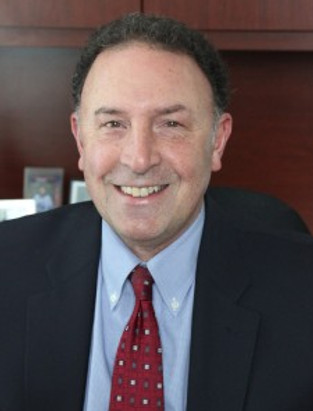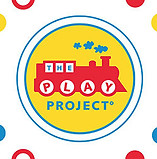
Community Spotlight
Interview with Dr. Solomon: Founder of the 'PLAY Project' Autism Early Intervention Program
November 1, 2020 ・ 2 min


Q: What do you enjoy most about your job?
A: “Well… I’m in the ‘helping’ profession. So, I love to help others and serve families in need. I’m also a developmental-behavioral pediatrician. For me, the great joy is helping families connect with their hard to engage children. For example, kids with autism. Helping families learn how to engage with their children truly brings me great joy.”
Q: Why did you choose a career in the autism field?
A: “Well, actually, it chose me! I was never interested in autism, per se. My first interest was in child abuse prevention. But when I traveled to Pittsburgh, Pennsylvania for a job at Allegheny General Hospital, I discovered that two special needs parents had sued the state. They won the lawsuit and came to me, asking for help. Both parents wanted to implement intervention programs when I arrived. This eventually started my interest in autism. It became so rewarding to see children get better. I’ve been interested in autism ever since.”
Q: What (or who) inspired you to found the PLAY Project?
A: “The idea for the PLAY Project came later. After my interest in autism was sparked by the situation in Pennsylvania, I began to learn more and more about different types of intervention. I actually got to know many leaders in the field, including Stanley Greenspan and Serena Wieder… Greenspan was an inspiration to me. He had developed a playful, developmental approach toward helping children with autism. I loved his model.”
“I’d like to say that the PLAY Project was born out of desperation to help families... because what I’d learned in Pennsylvania is that children with autism could get better if you delivered intensive intervention. That’s the key, right there."
"When I went to Michigan, we couldn’t have other people do it. So, I was inspired to train the parents… that was actually the birth of the PLAY Project. Out of desperation, we decided to train the parents to provide this intensive intervention. And, it worked! The parents learned the model. We have examined it with two research studies and we’ve shown, along with others in the country, that parents can, indeed, learn to engage their children. By doing so, the children really improve in their social development, which is at the core of autism. So, the PLAY Project was born out of desperation and parent training was the solution. Now, the PLAY Project is… we call them ‘parent-implemented models’ that use a developmental relationship-based approach (‘play’ based). There are now dozens of research studies to show that it works and they are being implemented all over the country. Besides the joy of helping families, I’m also very dedicated to spreading the word: parent-implemented models of autism and intensive, early-immediate intervention are the future! You can reach many more children that way. There are too many children on waitlists. So, this is the mission of our organization.”
Q: How do you meet a wide variety of needs for the children you support? What
resources do you use/adapt?
A: “Our model is a family support system of approach. We feel that the parent-child relationship is primary and that it helps the child to develop. We also understand that families and children with autism need support in lots of different ways (including speech and language therapy, occupational therapy, special education, and intensive interventions). So, we connect people to social services, food banks, etc. The PLAY Project consultants are amazing people. We’ve trained over 1,000 now and they are out there, serving families in the real world. These are children and families that need a lot of resources and that’s a big part of what we do.”
Q: Where do you hope to go with your career in the future?
A: “In the past few months, I’ve been spreading awareness of autism and advocating for public policies that promote more services to more children (through the parent training models). I think that there is a huge need because autism is 2% of the population now. The kinds of services that most people offer are limited and not reaching enough children. So, all around the world, I’m receiving calls from people because they realize that training parents is a really fundamental approach; a public health approach. So, that’s where I’m going with my career: simply looking more at public policy.”
Q: How has ASD personally affected/influenced your life? Do you know anybody
outside of the workplace that has ASD?
A: “Well… I take care of thousands of children with autism. So, it’s deeply affected my life. I have friends who have kids with autism. But, I think that there’s a fallacy, of sorts, that you can’t be affected by something that doesn't affect you personally. For me, it goes the other way around because I take care of so many children. I am deeply affected by their successes and their suffering. I think that there’s a need for global empathy. Today, many people don’t advocate for the things that don't affect them personally. I think that it’s ok to have feelings about global warming or poverty. We don’t have to know people! But, it certainly helps to have personal experience. I also feel that there’s a profound impersonal form of deep connection through passion and empathy. So, I don’t have anybody in my family who has autism. But, I still take care of very many children. For me, the suffering of not being able to connect with your own child... I think that everybody can appreciate how sad that is.”
Q: In your opinion, how can we, as a society, move forward from preconceived,
negative ideas surrounding those with ASD?
A: “A long time ago, children with down syndrome were put away in homes or separated from their families. I remember when it was a stigma to have a child with a disability of any kind. But I think the disabilities movement has made ‘disability’ human. This is not something that should be shunned or stigmatized. It should not create the ‘other’ because of disabilities. So, I think that there’s been a huge change in society. In fact, I was engaged in the IDEA laws (Individuals with Disabilities Education Act) which… as you may know, I’ve spoken all across the world. But the United States has some of the best laws to support the education of people with disabilities. The IDEA laws include everyone, not just children. But, it did form the basis for special education services. It’s really amazing! It created a very powerful way in which we look at all children, including those with disabilities.”
Q: Describe what a typical day is like for you. How has the PLAY Project responded to the COVID-19 pandemic?
A: “Well… we have moved the PLAY Project from face-to-face to online, called ‘teleplay.’ Families, anywhere in the world, can have play consultants virtually provided to them. We’ve also moved all of our PLAY Project training online because, fundamentally, we are a training organization. We train professionals to work with families and help children with autism through playful approaches. We’ve made everything available online, including the services themselves. Also, our website is full of resources for families.”
Q: Is there any additional information you would like to share about you, your work, or other professional experiences that would be helpful for me to know?
A: “Research! I believe that the interventions we use should be based on evidence. It’s important not to believe in what you read on the internet unless there’s a scientific basis for it. So, when you’re promoting programs, make sure that there’s evidence for it because a lot of people, for example, believe that immunizations cause autism (which is not true). Some people also think that a diet can cure autism (which is also not true). Additionally, there are a lot of fringe approaches that don’t work. But people promote it as if they do! It is so important to emphasize science as part of the approach.”
“I think that our society is opening up more and more. Children with autism have, as adults, contributed to various fields. So, I think that the issue of ‘normality’ is being challenged. We’ve got to look at everybody individually and accept people for who they are. We promote a philosophy of personal growth and reaching a person’s potential, regardless of what kind of condition they have. So, we’re always promoting the potential within these children. We’re strength-oriented. We’re non-stigmatizing. To me, there’s a beauty about the autistic mind that we appreciate, value, and promote. Yes, they have limitations just like anybody else. They’re always learning to improve in their experience of the world. This issue of ‘disability’ is very important to me.”
Interviewed By Cooper Bond
Visit the PLAY Project website:







